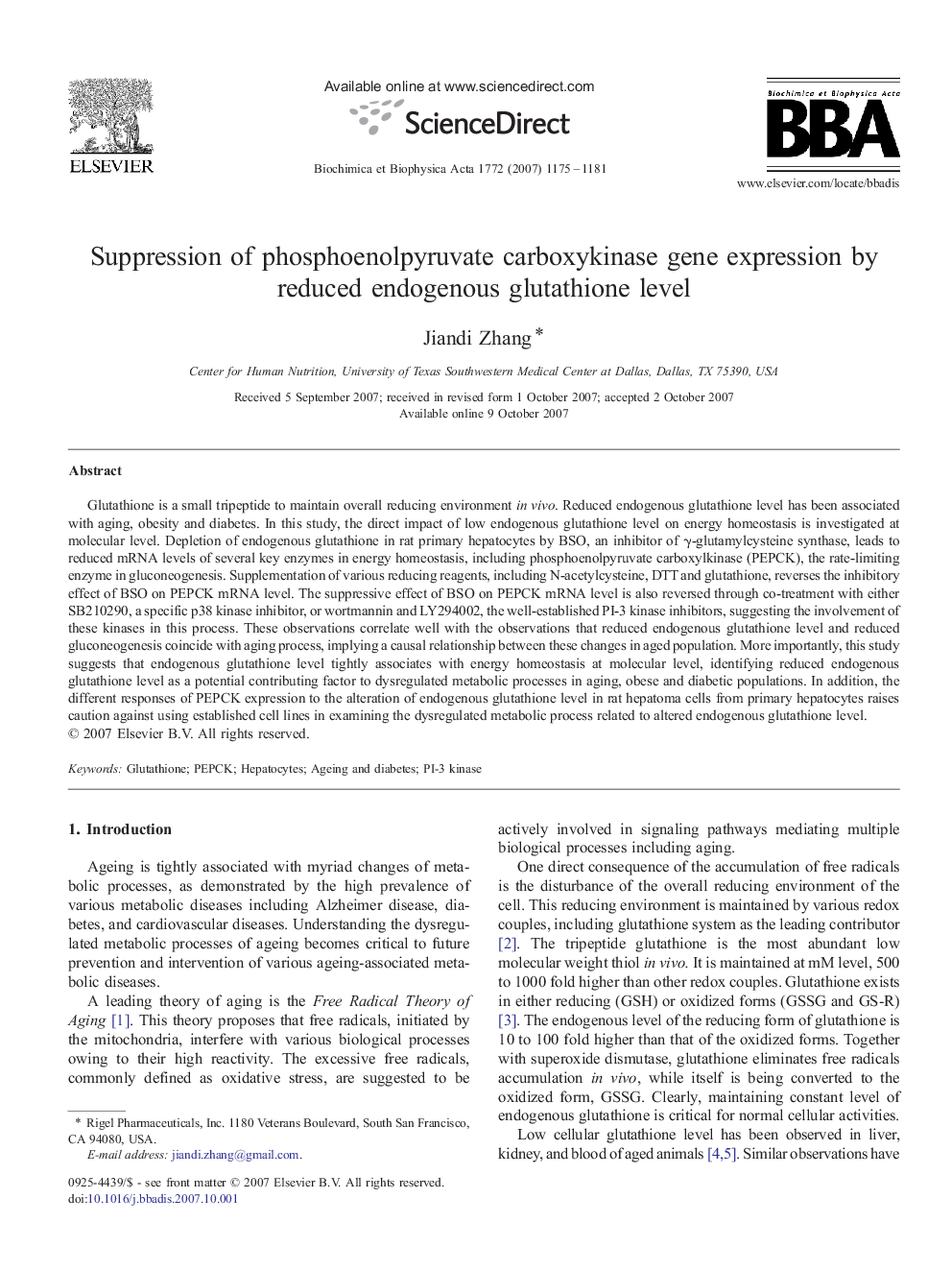| Article ID | Journal | Published Year | Pages | File Type |
|---|---|---|---|---|
| 1905739 | Biochimica et Biophysica Acta (BBA) - Molecular Basis of Disease | 2007 | 7 Pages |
Glutathione is a small tripeptide to maintain overall reducing environment in vivo. Reduced endogenous glutathione level has been associated with aging, obesity and diabetes. In this study, the direct impact of low endogenous glutathione level on energy homeostasis is investigated at molecular level. Depletion of endogenous glutathione in rat primary hepatocytes by BSO, an inhibitor of γ-glutamylcysteine synthase, leads to reduced mRNA levels of several key enzymes in energy homeostasis, including phosphoenolpyruvate carboxylkinase (PEPCK), the rate-limiting enzyme in gluconeogenesis. Supplementation of various reducing reagents, including N-acetylcysteine, DTT and glutathione, reverses the inhibitory effect of BSO on PEPCK mRNA level. The suppressive effect of BSO on PEPCK mRNA level is also reversed through co-treatment with either SB210290, a specific p38 kinase inhibitor, or wortmannin and LY294002, the well-established PI-3 kinase inhibitors, suggesting the involvement of these kinases in this process. These observations correlate well with the observations that reduced endogenous glutathione level and reduced gluconeogenesis coincide with aging process, implying a causal relationship between these changes in aged population. More importantly, this study suggests that endogenous glutathione level tightly associates with energy homeostasis at molecular level, identifying reduced endogenous glutathione level as a potential contributing factor to dysregulated metabolic processes in aging, obese and diabetic populations. In addition, the different responses of PEPCK expression to the alteration of endogenous glutathione level in rat hepatoma cells from primary hepatocytes raises caution against using established cell lines in examining the dysregulated metabolic process related to altered endogenous glutathione level.
